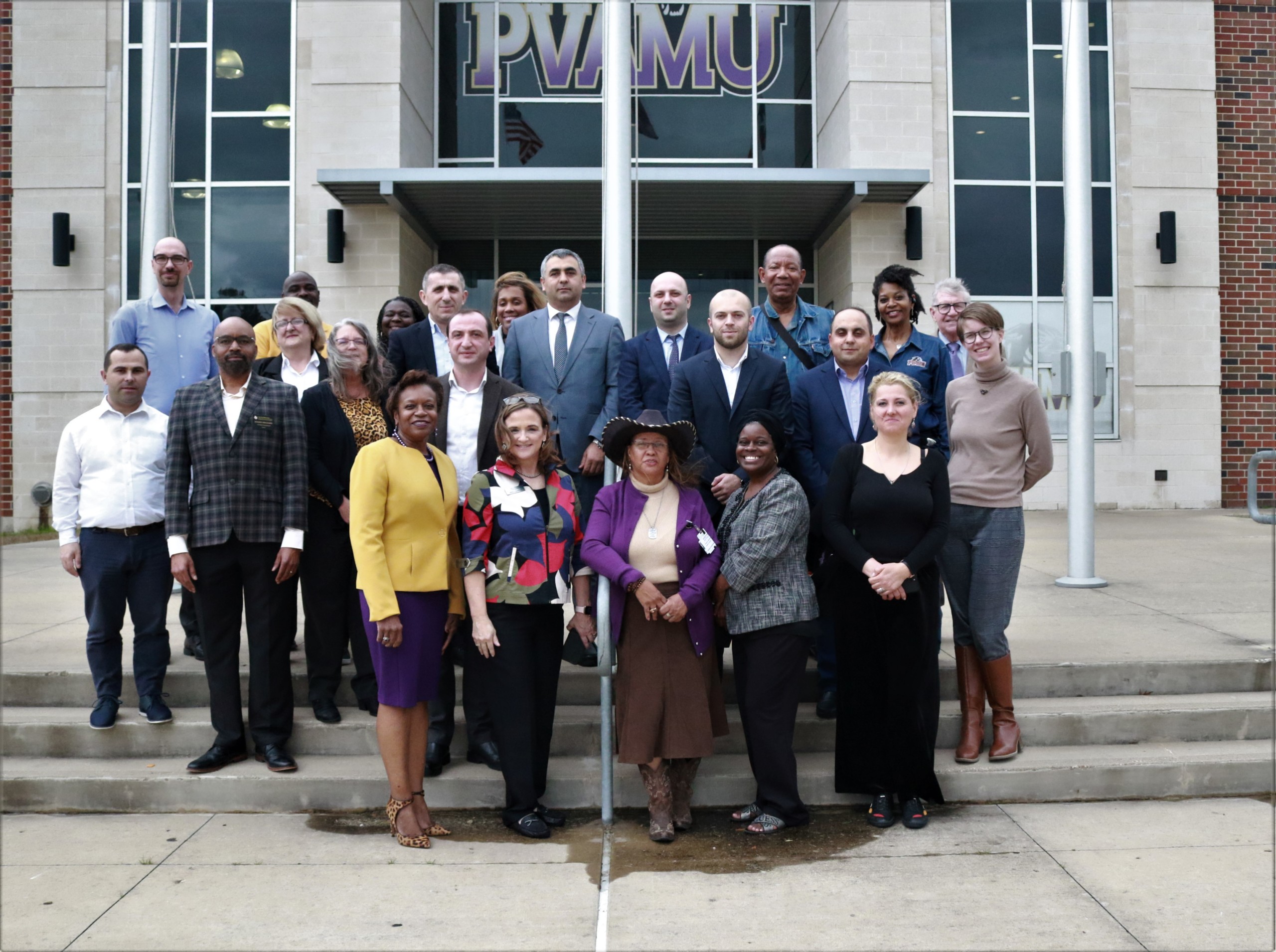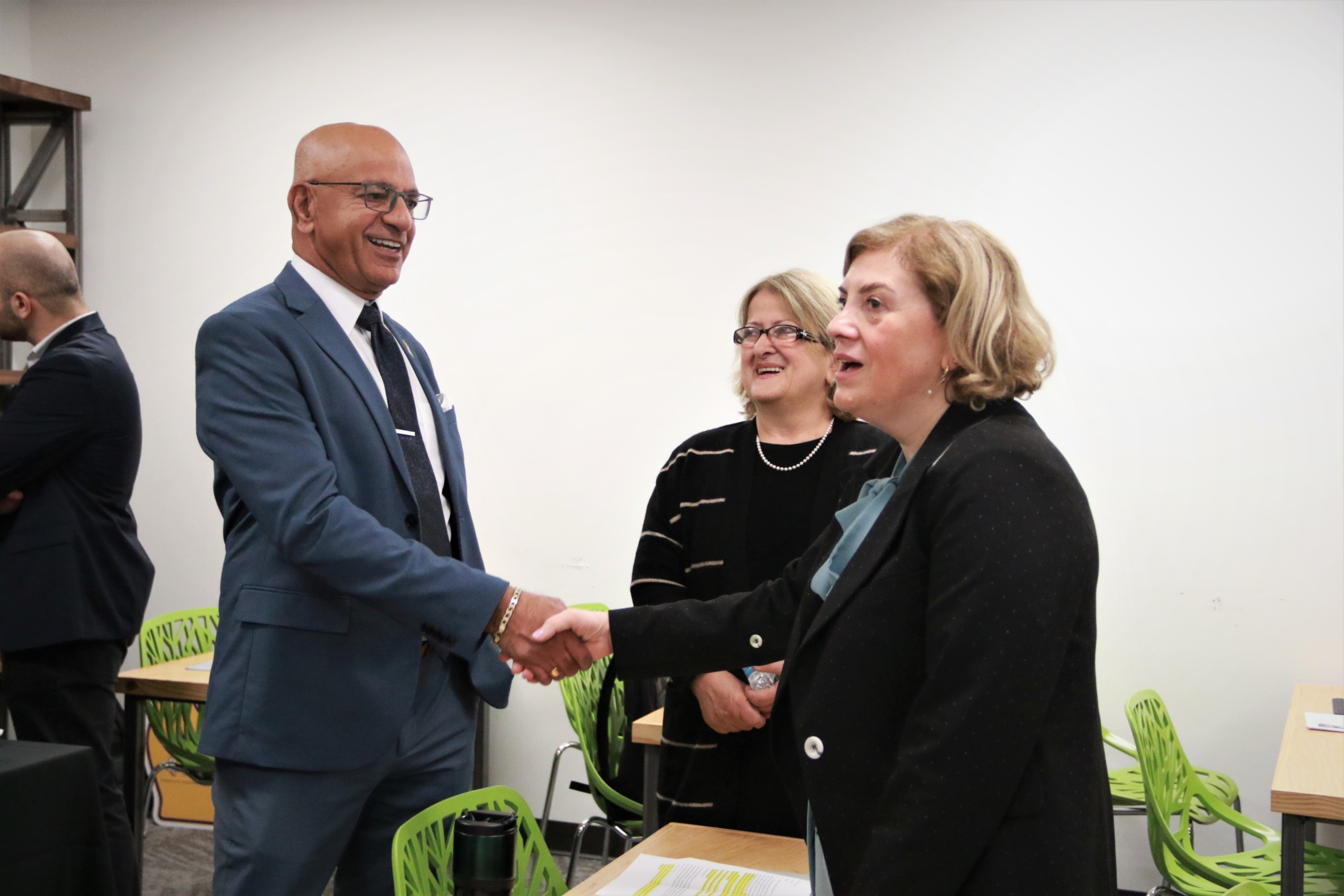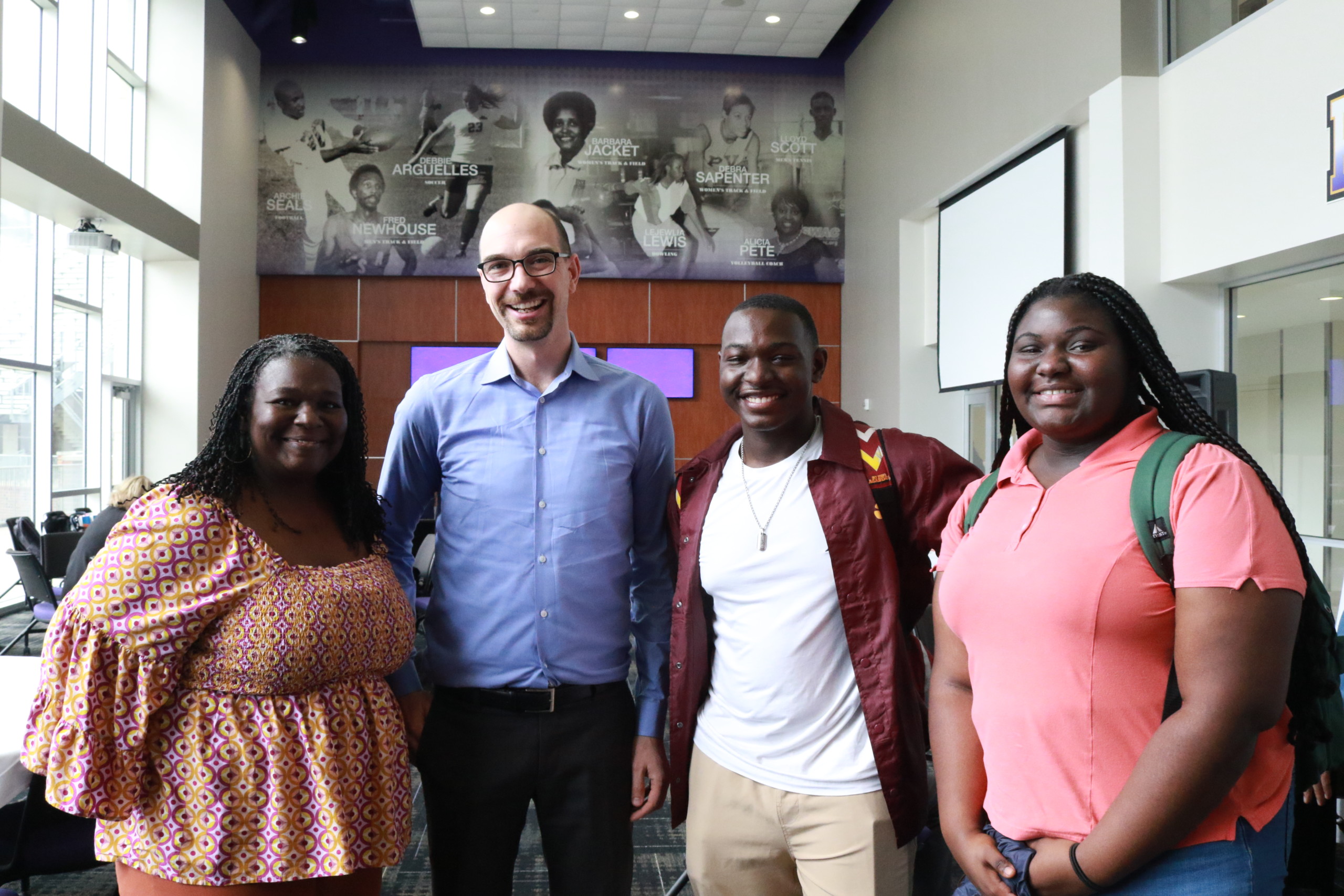PRAIRIE VIEW – The Republic of Georgia is moving towards building a sustainable, popular, permanent, and ever-growing agriculture blueprint for their country. They are enlisting the help of the College of Agriculture and Human Sciences to get their industry moving in the right direction.
Zaza Shavadze, the country’s Minister of Agriculture, along with other dignitaries, USDA employees, and the Director of Batumi Shota Rustaveli State University, met with college leadership and faculty in a two-day event analyzing CAHS’ approach to cultivating a strong agriculture curriculum within the college that extends to the outside community. The hope is that learning from what CAHS developed here in Prairie View will help the European country create a program tailored to their direct needs.
“The College of Agriculture and Human Sciences is doing amazing work aiding farmers and producers not only in our backyard but across the state of Texas, the country, and internationally,” CAHS Dean and Director of Land Grant Programs Gerard D’Souza, Ph.D. said. “It gives me great joy to know that we are recognized as a leading voice in successful agriculture programs and sustainability, and we look forward to helping the Republic of Georgia build its own strong agriculture network, which will provide incalculable benefits and growth for their communities.”
Sustaining a robust agriculture program that creates a lasting impact beyond the four walls of the college is a collaborative effort between several departments within CAHS and our partners in agriculture. The event sought to examine this multi-level effort in distinct ways. The two-day visit began on Monday, February 6, at the Harris County Extension Office, with a panel discussion on the integration between the government and CAHS’ extension unit. Several CAHS members gave lightning presentations on their roles in disseminating the Cooperative Agricultural Research Center’s research to local farmers and ranchers across Texas and how they use their expertise to meet the needs of those interested in the myriad of ways to invest in agriculture.
The day continued with individual meetings to discuss specific inquiries in detail. Our guests were also treated to a Heroes-4-Health demonstration at the office.
The last day of the visit took place on the Prairie View campus on February 7. Several of our research, academics, and student advisors participated in another lightning round presentation about advancing the tripartite mission: academics, research, and extension. Peter Ampim, Ph.D., Noel Estwick, Ph.D., Jacklyn Sanders, Ph.D., and others offered insight into their methods to create and sustain their individual areas in agriculture education. Sanders, for example, said after-school and extracurricular programs, like 4-H, are key to keeping students and young children engaged in agriculture, even if they are not immersed in agricultural classes in their schools.
During a panel discussion, Georgia heard more details about out-of-school opportunities for students in Texas and how these programs operate locally. They also learned how to plan these programs to keep a consistent schedule.
“I thank the USDA, the university, and the extension services for the chance to come here and meet you all, along with members of Batumi Shota Rustaveli State University,” Shavadze said through a translator. “We are open to hearing your knowledge and experience to implement good programs and projects in our country.”
The Republic of Georgia has a population of more than 3.5 million people, with a sizeable percentage working in agriculture. “Fifty-nine percent of the country’s geology is covered by forest, so for us, we are also interested in learning about environmental resources, how to manage them, and how to provide that knowledge in this regard.”
The end of day two also included breakout sessions in smaller groups, targeting key concerns and questions that university representatives had. Some breakout groups included leaders of Batumi University and Cooperative Extension Program Executive Associate Director Carolyn Williams, Ph.D., on how to build a lasting agriculture program at the university. Another group met with CAHS Agriculture and Natural Resources unit program leader Clarence Bunch, Ph.D., extension agents, and parents of current PVAMU students that participated in 4-H and other youth agricultural building programs. They said bridging their budding agriculture industry to the citizens’ career needs and interests is important. Assess the demands of the community and workforce and build the ag culture around that research.
According to one representative, Georgia desperately needs modern technology as an essential missing tool for youth development. They say non-government-assisted programs are often unsustainable, one of the main challenges they want to overcome. They are interested in creating a pilot Ag unit using some of the successful methods of 4-H, as well as manageable, smaller-scale Ag programs that can grow.
Prairie View A&M University and Batumi Shota Rustaveli State University are committed to strengthening their working relationship to brainstorm ideas to build a strong agricultural industry in the country.
Pascale Mondesir
Communication Specialist II
pamondesir@pvamu.edu



